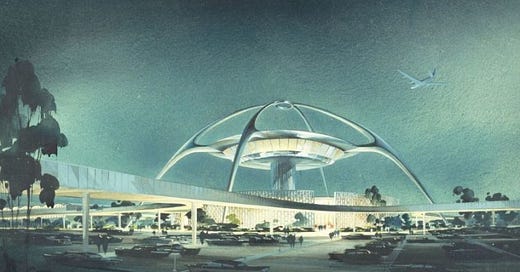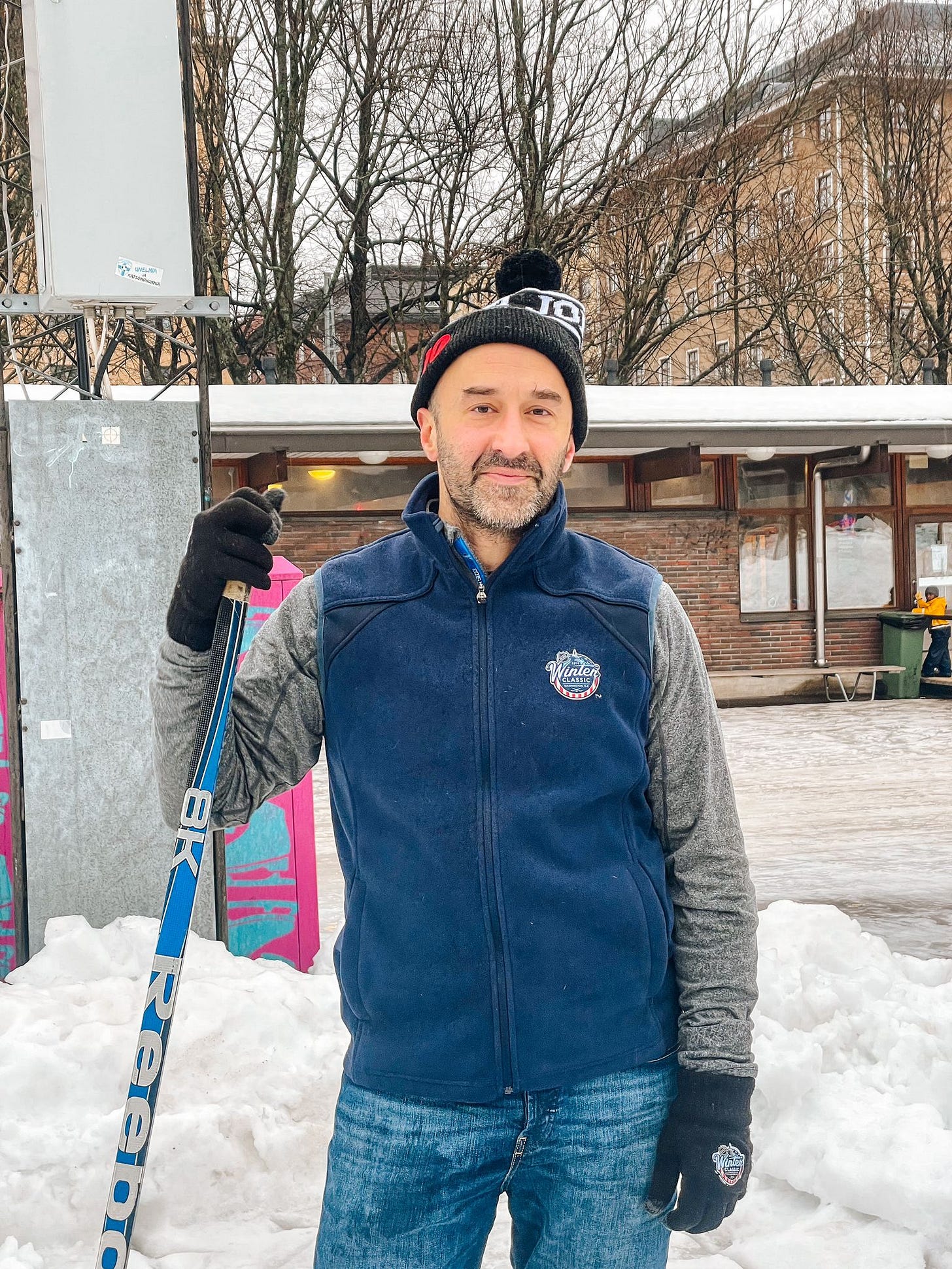The Curious 5 + 1 Series - Opening Shot with David Weiner
Let's get back to that afternoon at LAX where we solved big brand's biggest media problems.
Curiosity has always been a reliable guide in my career—especially when the playbook isn’t obvious and the stakes are real.
That’s why I’m kicking off The Curious 5+1 Series: a chance to bring forward thoughtful, honest reflections from peers across industries on what they’ve learned, rethought, and are still focused on in leadership, growth, and strategy. I was inspired by memories that came forward from past conversations.
This series will offer keen perspectives, recognition of business growth patterns, and a few well-earned lessons from people who’ve been in the arena. With a goal of publishing a limited series of 20 conversations, we’ll explore the decisions that mattered, the pivots that paid off, and the things no one teaches you in a quarterly review.
It’s also a celebration of something simple but powerful: how asking the right questions—and listening closely—can reshape a career. I hope these stories spark something useful for your own path, whether you're leading a team, building a brand, meeting new leaders or mapping your next move. Let me know what resonates—and what you want to hear more of.
I first got to know David Weiner during our time together at PepsiCo, where we were navigating the rise of digital engagement and launching first-to-market social media campaigns across a portfolio of beverage brands. Later, we found ourselves in LA, pitching Taco Bell on how digital behavior and household data could drive beverage volume—long before they became digital powerhouses on their own. Delayed by weather, we ended up with a few unexpected hours at the iconic LAX Theme Building, swapping stories, sharing ideas, and finding common ground beyond the pitch deck.
Beset by weather issues and delays, we spent a few hours at one of our customer locations, The Theme Building at LAX, and what a vantage point it was to spend an afternoon cocktailing and getting to know each other better.
Since then, David and I have kept in touch through annual check-ins and conversations that always leave me thinking. Now based in Finland, David’s built a career that spans PepsiCo, the NHL, and Nationwide—and today, he advises brands and leaders on how to bring AI-powered efficiency to marketing and operations. He’s also a vibe-coder, a curious experimenter, and a passionate chess player.
I asked him five questions about what he’s learned, changed his mind about, and where he sees opportunity next. Here’s what he shared.
What’s a belief in your recent career you’ve changed your mind about in business, marketing, growth, or leadership?
“Move fast and break things” vs. “Slow is smooth. Smooth is fast.” In the start-up world, moving fast is definitely important, but I think that can often be misunderstood and misapplied. I think it’s certainly important to move fast and break things at certain stages, but when there’s dysfunction or a strategy that isn’t solid, the only thing that’s breaking is the company. I've worked at companies that were able to move fast and change strategy and execution on a dime; but working at a company that took a long time to make strategic decisions, gain internal alignment and commitment, and focus on the details. Sure, sometimes speed is necessary, but from a strategic perspective time is an incredibly valuable resource for perspective.
What’s one decision that a brand made which looked small from the outside—but changed everything internally?
At PepsiCo, when we we relaunched Brisk Bodega as the core idea and brand foundation. In the past it had been used as a multicultural marketing tactic to reach out and engage with urban audiences. We changed it to become more of the brand identity and the actual destination, so it wasn’t just a multicultural campaign, it was a culturally relevant brand. The impact that had on brand equity was huge.
Where are customers trying to go that a product you've worked on doesn’t help them yet?
Despite all of the tools that help develop, create and automate content (from ads to images and text), there still aren’t any tools that are perfect for marketers and marketing teams to manage projects, productions, campaigns or analyze creative effectively and holistically. There are a million point solutions out there but nothing that seems to be built for marketers by marketers. It’s such a strange phenomenon how many orgs are still using spreadsheets for everything from planning to project management given how advanced the SaaS space has become.
How do you separate signal from noise when you're flooded with data?
I take a step back and try and settle back into the foundational strategy and objectives then I will try to group certain metrics together and develop insights at different stratospheres. For example, when growing a start-up and trying to gain traction and product market fit, you have a ton of noise ranging from search traffic, time on site, conversion rate, churn, paid traffic vs. organic, return visitors, etc. In this case and many others, sometimes you have to be comfortable with a lot of things like chaos, uncertainty and that the data might not give you any good answers. Staring at it longer won’t necessarily make anything clearer, it just robs you of time and momentum.
What’s one principle of team-building you’ve borrowed from a high-performing team—inside or outside of business?
One thing I learned from the best manager I ever had was seemingly small but turned into one of my most utilized anecdotes over the last 5 years. Every mistake doesn’t need to be addressed immediately (or sometimes at all). There is a very fine line between coaching, addressing issues and having a low mistake tolerance. The latter can be quite toxic, especially if it’s a senior leader who's impossible to please. There’s a fine line between high expectations or standards and a low mistake tolerance, but the toxicity really comes into play when and if feedback is not delivered tactfully. In the case where I took this learning from, my boss knew I knew I made a mistake. He didn’t need to smack the back of my hand with a ruler. He knew I knew I messed up and also trusted that I would learn from the mistake and not let it happen again.
Bonus: What's one of your favorite meals and why?
There’s no doubt that if I had to pick one meal at one restaurant it would have to be at Le Bernardin. I’ve had the privilege to dine there quite a few times and it was always perfect. From service to food, it’s always a meal to remember. BUT, I never had more fun hopping from stall to stall eating street food in Oaka and Tokyo.
Thanks David for weighing in and being the first to participate. Great for you to represent all the way from Finland.
Every career is a mix of timing, reflection, and tough lessons learned under pressure—and this conversation is a reminder of that. From redefining speed in leadership to building cultures that value trust over correction, this edition of The Curious 5+1 shows how much clarity can come from experience. When we slow down long enough to learn from others, we build better companies—and become better leaders in the process.
If something in this interview resonated with your own path, let me know in the comments. Let’s keep the momentum going through shared wisdom, honest stories, and the power of intentional networking.





